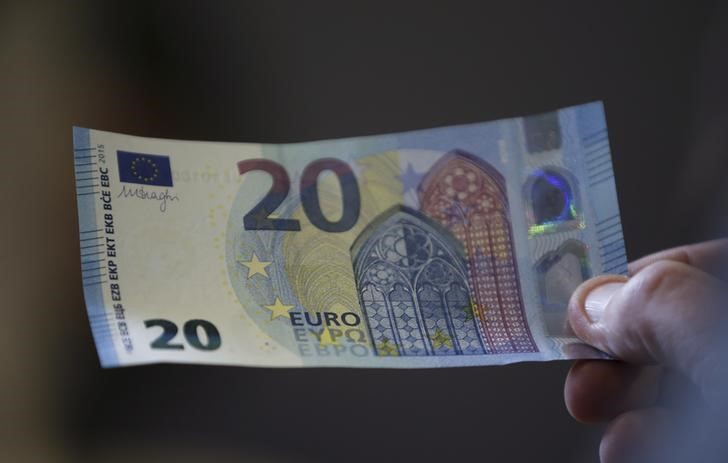* Euro stabilises after Monday's bounce from 21-month low
* Risk of early Italian election seen as waning for now
* Focus now on ECB meeting on Thursday
* Graphic: World FX rates in 2016 http://tmsnrt.rs/2egbfVh (Updates after start of European trading)
By Patrick Graham
LONDON, Dec 6 (Reuters) - The euro held steady near a 3-week high on Tuesday while bets on market volatility stayed close to their highest since June's Brexit vote ahead of this week's European Central Bank meeting due to give new guidance on its quantitative easing programme.
The Australian dollar dipped about a quarter of a percent after the Reserve Bank kept interest rates on hold but sounded a note of caution on the pace of growth. AUD=D3 other major currency pairs were all trading in a tight range after a rollercoaster ride following Sunday's Italian constitutional referendum that saw the euro dip to a 21-month low before bouncing more than 1.5 percent.
Helped by data showing the biggest rise in German industrial orders for more than two years in October, the euro rose by just over 0.1 percent on the day against the dollar. EUR=
"I have a really hard time staying bullish on the dollar even though we have Italian government uncertainty on top of it all," Indosuez's Geneva-based head of FX and precious metals trading, Davis Hall, said.
"The range is probably still $1.0850 to $1.0250 (but) if you get a negative (like Italy) on the euro and the euro does not go down, it just tells you that the positioning matters. The dollar longs are so extended."
Italian Prime Minister Matteo Renzi's referendum defeat and subsequent confirmation that he would resign was widely expected and, after an initial drop, led to widespread euro buying by players seeking to cash in the gains they had made in the fall.
"People just could not get enough euros yesterday, that tells you what a short-term trade this was," said a dealer with one large international bank in London. "Plus there is now the ECB to think about on Thursday."
One-week implied volatility EURSWO= has retreated from highs of almost 18 percent reached before Sunday's referendum, but at 13 percent is still almost double recent months' normal levels.
ECB chief Mario Draghi's news conference on Thursday is among the most hotly awaited this year, given expectations that the bank will lay out its plans for quantitative easing after next March.
At least a six-month extension of the programme is now expected but many bank and fund analysts speculate that the bank might announce some sort of reduction or tapering of the monthly bond-buying amounts as part of that move.
Any such change in the direction of the ECB's policymaking would generally be regarded as a euro positive after almost two years of money-printing which have weakened the currency.
"The euro ... remains in a strong position in the G10 FX space, and the reaction to the referendum has generally been mild," London's City Index Direct chief analyst, Kathleen Brooks, said.
"Political risk matters, but as long as Italy's banking sector can scrape together some foreign investment, mixed with a sweetened nationalised deal for Monte dei Paschi, then we can't see how Italy's political woes can have anything other than a temporary impact."
<^^^^^^^^^^^^^^^^^^^^^^^^^^^^^^^^^^^^^^^^^^^^^^^^^^^^^^^^^^^ Graphic on world FX rates in 2016
http://tmsnrt.rs/2egbfVh
^^^^^^^^^^^^^^^^^^^^^^^^^^^^^^^^^^^^^^^^^^^^^^^^^^^^^^^^^^^> (Editing by Louise Ireland)
